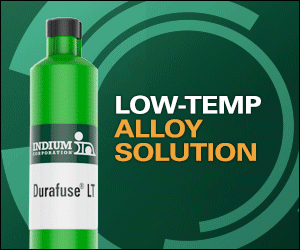New Auto Industry Technologies for Emission Reduction
Provided by BIS Research
The automotive industry has been a significant pillar in the development of the world economy and has been a prime factor in macroeconomic growth across the globe. The number of on-road vehicles has increased drastically in the past two decades, and as a result, worldwide vehicle sales in the year 2016 reached approximately 88 million. This tremendous growth has been a source of
depletion of natural, non-renewable resources and the degradation of the environment. As per the report by the Environmental Protection Agency (EPA), in 2015, the transport sector contributed 27% of the total greenhouse gases (GHG) emission in the U.S. In Europe, the European Environment Agency (EEA) claimed that the transport sector contributed 25.8% of total GHG emissions.
Automotive companies with support from the government are continuously working on research and development of components that may contribute towards lower fuel consumption and reduced emissions. The Regenerative Braking System (RBS) is one of the latest technologies that is gaining popularity in the automotive industry. This technology increases the fuel efficiency of vehicles and
consequently helps OEMs obtain the requisite level of GHG emissions. Automotive companies have started employing RBS in their vehicles. In order to further increase the investment in such fuel-efficient technologies, various legislative bodies have associated several incentives and offers with the usage of these components.
The RBS is capable of increasing the fuel efficiency in a vehicle by 10% as per the manufacturers’ claims. The adoption of RBS for electric and hybrid vehicles has increased and automakers are also integrating this technology into their vehicles. Some of the prominent cars integrated with RBS include Tesla Model S P85, BMW E90 3 Series and F25 5 Series, Volkswagen MK7 Golf, and MK7 Golf Estate/Wagon. RBS is being used extensively in order to improve vehicle performance of vehicles and stringent government regulations are aiding the increase in its adoption rate.
According to the new market intelligence report ‘Global Automotive Regenerative Braking System Market- Analysis and Forecast: 2017 – 2026’, the volume of the global automotive regenerative braking systems market is expected to reach 16.7 million units by 2026, growing at a double-digit CAGR from 2017 to 2026. The major reason for this growth is the rise in the adoption of RBS by automakers in order to improve fuel efficiency and reduce exhaust emissions from the vehicles. In addition to this, the anticipated fall in the manufacturing cost of RBS during the forecast period will also contribute to the high growth of the market.
The Regenerative Braking System has different types of storage, namely batteries, flywheels, hydraulics, and ultracapacitors. Among these, battery based regenerative braking systems are anticipated to hold the maximum share of the total market and dominate the market during the forecast period. However, it is the ultracapacitors which are expected to grow at the highest rate owing to their better charge capabilities and superior performance over other storage-based systems. This is further expected to result in a dynamic shift from batteries to ultracapacitors, as ultracapacitors based RBS offers several additional advantages over battery-based systems such as the ability to burst high amounts of power even at -400 Celsius, greater efficiency, and high storage capacity.
The trends of RBS varies across different vehicle segments such as passenger cars, and commercial vehicles. The automotive RBS for passenger cars held the highest market share in the year 2016 and is expected to grow at a higher rate as compared to commercial vehicles. The major companies in the market are aiming for an increased number of product launches and collaborations to expand their operations and strengthen their position in the market.
Some of the key players are
- Aisin Seiki Co.Ltd (Japan)
- Adgero S.A.S (France)
- Autoliv Nissin Brakes Systems (Japan)
- Continental AG (Germany)
- Denso Corporation (Japan)
- Eaton Corporation Plc (Ireland)
- Magneti Marelli S.p.A (Italy)
- Maxwell Technologies (U.S)
- Mazda Motor Corporation (Japan)
- Robert Bosch GmbH (Germany)
- Skeleton Technologies (Estonia)
- Torotrak Plc (U.K)
- ZF Friedrichshafen AG (Germany)










